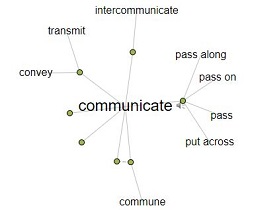
What To Do To Get Referrals: Professional: Precise
Leadership includes communication. Often communication is the thing clients complain about then they're dissatisfied with a current vendor and open to a referral to you. Share your communication principle, and a way you use this guideline in real life with clients.

Response from Joe Gottlieb
For many years I have had a direct phone number. Clients are often caught off guard that I have personally answered their call. Lack of communication is the most common criticism of attorneys so I work hard to distinguish myself in that area. I also answer client e-mails 7 days a week. I strongly believe that as a trusted advisor, I need to meet the highest expectations of accessibility from my clients and that principal has served me well in over 40 years of practice.
Response from Karen Williams
from the Virginia Highland Team

Response from Terisha Tatter

Response from Mary Ann Staff

Response from Alberto Sapoznik

Response from Wendy Kinney
from the PowerCore Team

Response from Amanda Hamilton

Response from Mason Hardin
Similar to others here I have learned that it's best to get in front of bad news and speak with the client about strategies as soon as possible. This goes a long way to retaining trust. I have also found it is best to give bad news either face to face or over the phone. That way you can immediately address any concerns the client may have about the situation. Good news is much easier and can generally be shared through email with the client reading it at their leisure.

Response from Jeff Buchweitz
Because my business is solely based on referrals, I've always felt the need to over communicate with all parties associated with the loan I have in process. That includes the borrower, the referral partner and the listing agent. Atlantic Bay has an automated system to provide timely updates on loans, however, I feel like a direct phone call to each party once a week lets them know that I am personally involved on the file from application to closing. My clients and referral partners know that they are free to call, text or email me anytime and can trust that I'll respond in a timely manner. Financing a home is probably the biggest financial decision my clients will make and I want them to know that I'm always available to answers questions regarding their loan.
Response from Laurie Nolan
Within my industry, competition is such that if I am a failure at communicating with clients, mortgage professionals, etc, they will look elsewhere. I love my work, and want to ensure that those I'm working with are properly insured, and that they have a real grasp of their coverages/policies. My goal is the cultivating of relationships, not one and one type of business.
.jpg)
Response from Jayden Doye

Response from Susan Pulse

Response from Jeanie Clinkscales
Response from Ben Battell
"There are no stupid questions" Technology is a moving target with way too many anacronyms and high costs on some items. Detailed and upfront communication is critical to help clients feel comfortable. One principle I live by is "there is never a stupid question" All questions are an opportunity to clarify and demystify technology and gives a glimpse into how they are looking at the situation. The result is deeper trust and partnership over time.
Response from Ricky Guida
One principle I try to live by is that bad news doesn't get better with age. If there are issues, it's important to surface them sooner than later so that they can be addressed. Customers (and people in general) understand that issues will occur, and that they can generally be figured out if they are known. Finding out too late or after the fact can create a lack of trust and make the situation far worse.

Response from Evan Williams
Communication is the undercurrent of anything related to Video Production. The goal of any video? Communicate a message. Producing the video? Communicate what we need to make it happen. On set? Effectively communicate what you need for each shot. It involves being able to listen to all the different voices coming in, adding your input, and then sharing that newer bigger goal. I really think that the main skill you need for my job, even beyond the technical or creative ones.
